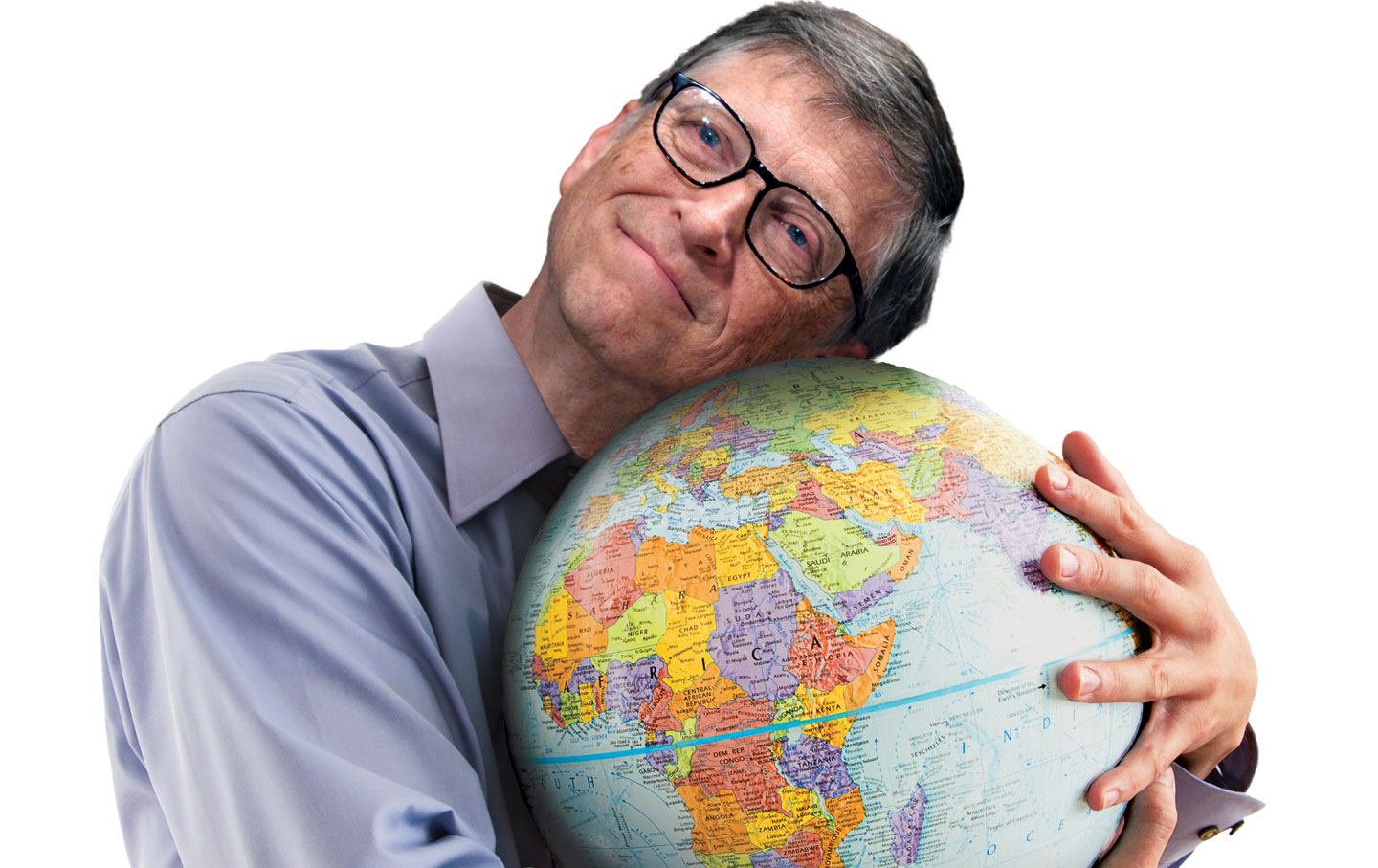Philanthrocapitalism: A Self-Love Story
Why do super-rich activists mock their critics instead of listening to them?

n 1961, two and a half years after taking power, Fidel Castro gave a celebrated speech to the Cuban artistic and cultural elite that came to be known as “Words to the Intellectuals.” “What are the rights of revolutionary or nonrevolutionary writers and artists?” he demanded. Then, answering his own question with a particular focus on nonrevolutionary writers, he declared: “Intellectuals who are not genuinely revolutionary [must be allowed to] find a place to work and to create within the Revolution.” But even this freedom had its limits. “Within the Revolution,” Castro thundered, “everything goes; against the Revolution, nothing…no rights at all.”
Bill Gates couldn’t be more different, temperamentally or politically, from Fidel Castro. He once characterized anyone who challenged the current intellectual-property laws—specifically those guaranteeing software patents—as a “new modern-day sort of communist.” But when it comes to those who criticize the philosophy underlying the work of the foundation he runs with his wife, Melinda, Gates has shown the same steely moralistic dualism as Castro, the same insistence that those who don’t agree with him don’t deserve to be listened to.
Consider his attack on Dambisa Moyo, the Zambian economist whose Dead Aid, published in 2009, is a prosecutor’s brief for the argument that development aid to Africa has done more harm than good. Asked about the book on the Australian television show Q&A in May 2013, Gates replied that Moyo “didn’t know much about aid and what aid was doing” in Africa. This was a harsh statement, though one that Gates had every right to express. But he didn’t stop there. “She is an aid critic,” he said. “There’s not many [of them], because it’s moralistically a tough position to take, given what aid has been able to do. But if you look objectively at what aid has been able to do, you would never accuse it of creating dependency. Having children not die is not creating a dependency. Having children not be so sick they can’t go to school, not having enough nutrition so their brains don’t develop—that is not a dependency. That’s an evil thing. And books like that are promoting evil”—a judgment that, in its own context, is every bit as totalitarian as Castro’s.
As they say in the military: In war, the enemy gets a vote. And the reality is that Philanthrocapitalism: A Self-Love Story | The Nation:
